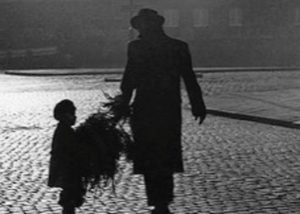The death of a loved one alters a person’s life in a dramatic and permanent fashion. The grief process, also known as mourning, has five distinct stages. Successfully navigating these stages of grief can help one recover from the loss and resume their life with greater ease.
Elisabeth Kübler-Ross identified the five stages of grief in her 1969 book On Death and Dying. Dr. Kübler-Ross’s work was not exclusively discussing grief but rather the major emotional responses to the experience of death. In her work, however, Dr. Kübler-Ross noted that there were five distinct responses that at times were separate stages and at time overlapped. She also noted that these responses were present in both the dying person and those who were directly impacted by their death.
The first stage of grief that Dr. Kübler-Ross identified was that of denial
A person who is in denial will insist that they are not troubled by the event or otherwise ‘fine’. Many people who are in denial will seem to have little to no response to their loved one’s death. At times, they may seem to have an almost cavalier response.
The second stage of grief is anger.
The person who has entered this phase of grieving realizes that denial does not help them cope with the loss of their loved one.
 Sometimes, a person who is in the angry stage of grief finds it to be emotionally safer to direct their anger at other people or situations that are not connected with the death. Some could argue that this is an overlapping of the first stage of grief with the second.
Sometimes, a person who is in the angry stage of grief finds it to be emotionally safer to direct their anger at other people or situations that are not connected with the death. Some could argue that this is an overlapping of the first stage of grief with the second.
Thirdly, a person will enter into the bargaining stage.
In the bargaining stage, the grieving person has begun to accept their loss and are attempting to cope with it. In people who are dying from a terminal illness, sometimes this manifests as an attempt to postpone life by way of attempting to make some kind of agreement with a higher power. In cases where a loved one has died, the survivors will often make “If only” and “what if … .” statements in an attempt to lessen the impact of their loss.
Often, one will move between the bargaining stage, the denial stage, and the anger stage quite frequently. Intermixed with these three stages is the fourth phase of grief, depression. Where the first three stages deal with the loss in an abstract sense, the fourth stage of grief is a very direct experience of the present. A person who is in the midst of depression should be closely monitored to ensure that they are safe and well. At times, people who are suffering from depression struggle with maintaining their own health and well being.
Give Support to the Mourning Person
Supporting a person who is mourning is vital. Their moods may seem mercurial as they transition through the different stages of grief before passing into the final stage of acceptance.
 Ways that someone can help support a person who is grieving ranges from assisting them with daily tasks that may prove overwhelming to providing a safe outlet for them to express their emotions.
Ways that someone can help support a person who is grieving ranges from assisting them with daily tasks that may prove overwhelming to providing a safe outlet for them to express their emotions.
If you are in the midst of the grieving process, it is important to express your emotions. Acknowledging your emotions and processing them is key to healing the pain of your loss. Some people will use their anger to accomplish things that are healthful for themselves or meaningful to the departed. When one is in the grips of depression, it is vital to ensure that they are meeting their health requirements. This includes proper diet, exercise, and socialization. If your depression has become severe enough that it interferes with these things, it may be wise to discuss the problem with your medical doctor. Depression is a legitimate medical condition and there are treatments that can help alleviate the problem.
Most importantly, if you or someone you know are moving through the stages of grief, remember that this is a temporary thing. While the loss of the person is permanent, the grief shall pass. Handle yourself gently and make sure, if you are supporting another person through grief, that you remember that this too shall pass.






